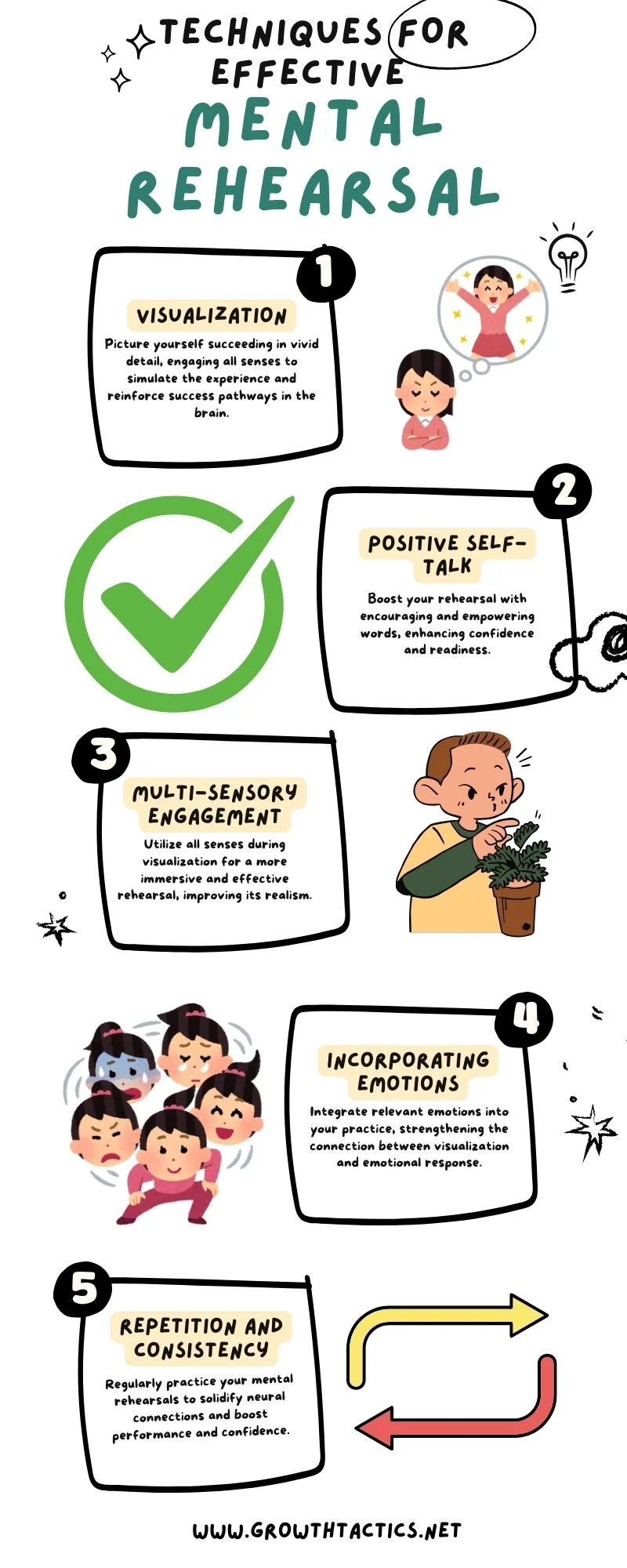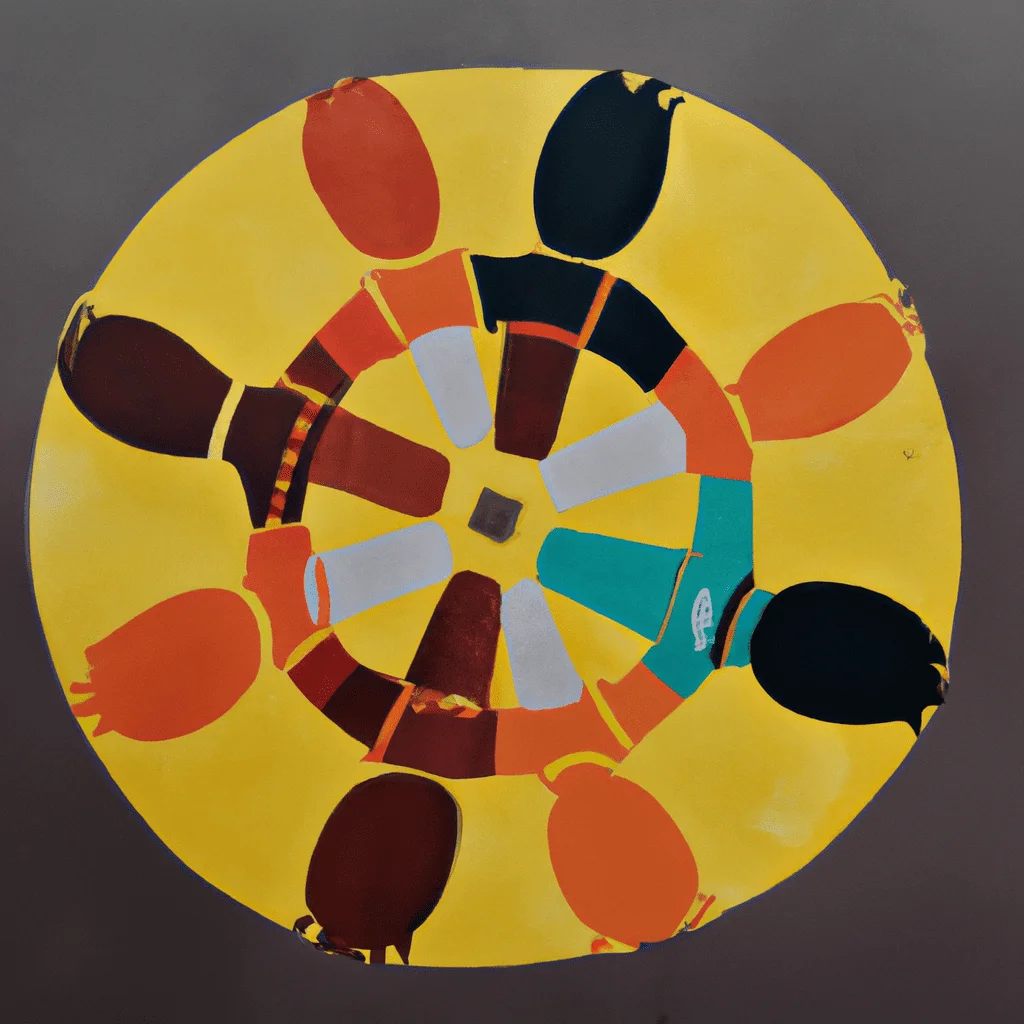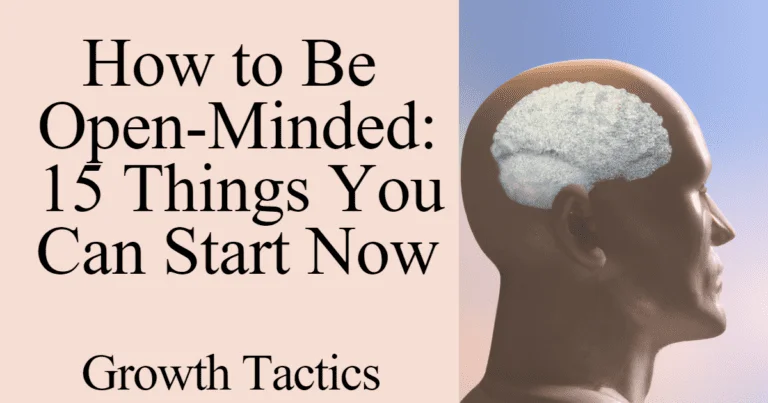Crack open the door to a vibrant world of possibilities! Open-mindedness isn’t just a trait; it’s a ticket to a thrilling adventure in understanding and growth. Why stay in the comfort zone of old ideas when a universe of concepts awaits? Break free from the chains of rigid thoughts.
Learn how to be open-minded with our top 15 strategies, and watch as new opportunities blossom. Get set to refresh your perspective and enrich your life, one open-minded moment at a time. Ready to challenge the norm and embrace the new? Let’s dive in!
Jump To Section
What does it mean to be open-minded?
Open-mindedness means having a willingness to accept new information and ideas, even if they conflict with existing beliefs. This can be difficult, but it’s essential for staying flexible and learning from new experiences. Open-minded people are often more knowledgeable and aware than those who adhere to traditional beliefs, making them better able to understand and appreciate the world around them.
What are the benefits of being open-minded?
Being open-minded comes with a range of benefits. Here are some key advantages:
- Learning and Personal Growth: Open-mindedness enables us to learn new things and expand our knowledge. It allows us to embrace different perspectives and experiences, leading to personal growth and development.
- Improved Problem-Solving: Open-minded individuals have a greater capacity to consider alternative solutions and approaches to problems. By being receptive to different ideas and viewpoints, they can come up with innovative and creative solutions.
- Enhanced Empathy and Understanding: Open-mindedness fosters empathy and understanding for others. It allows us to see the world from different vantage points, promoting compassion and acceptance of diverse cultures, opinions, and beliefs.
- Effective Communication and Collaboration: Open-mindedness supports effective communication and collaboration. It encourages active listening and respectful dialogue, facilitating meaningful connections and cooperation with others.
- Reduced Prejudice and Stereotyping: Open-mindedness helps to break down prejudices and stereotypes. By challenging fixed beliefs and attitudes, individuals can overcome biases and develop a more inclusive perspective.
- Adaptability and Resilience: Open-minded individuals are better equipped to adapt to new situations and navigate change. They are more resilient in the face of challenges and can embrace uncertainty with a flexible mindset.
- Improved Relationships: Open-mindedness contributes to healthier and more fulfilling relationships. It enables us to appreciate and embrace differences in others, fostering deeper connections and mutual respect.
In summary, embracing open-mindedness brings numerous benefits and can lead to personal growth, improved problem-solving, empathy, effective communication, reduced prejudice, adaptability, and stronger relationships.
Characteristics of open-mindedness
Open-minded people are typically good at problem-solving and can often see the potential for improvement in even the worst situations. They are also able to see the positive side of both familiar and unfamiliar situations. This makes them receptive and supportive of other people’s ideas and actions, which can lead to productive team dynamics.
Open-minded people are versatile and adaptive thinkers who can thrive in a variety of environments. They are often able to see the bigger picture and have a broad range of interests and knowledge. This versatility makes them well-equipped for a variety of careers, both in the classroom and on the job market.
How to be more open-minded

There are many ways to become more open-minded. Some tips include:
Get Out Of Your Comfort Zone
Comfortable living conditions, routines, and people are always the same. Almost everyone has their comfort zones which they seldom leave to see new things and meet new people. Open-mindedness is the key to overcoming this fear and getting out of your comfort zone. With a bit of courage and willingness, you can explore many new things and make valuable relationships that will help you grow as a person.
Reframe Negative Thoughts
It can be really hard to shake negative thoughts and beliefs. But it’s important to reframe them more positively. Doing this can help us feel better about ourselves and our lives. Here are some tips for doing just that:
1. Define the goal. Before trying to reframe a negative thought, it’s important to set a specific goal for yourself. This could be anything from making more money to becoming happier and more fulfilled in life.
2. Visualize success. When we have a clear goal in mind, it’s easier to visualize success. Picture yourself achieving your goal, and feeling happy and satisfied with the results.
3. Write it down. Keeping a positive thought journal is another great way to stay on track and reframe negative thoughts in a positive light. Writing out your thoughts can help you address them logically and objectively, which can help you overcome any psychological barriers that may be holding you back from achieving your goals.
Remember, there is always hope, no matter how dark or negative the thoughts might seem at first glance! With hard work and dedication, anything is possible. Even overcoming negative self-talk and creating a bright future!

Understand your biases
Understanding your biases is important to reducing discrimination and improving your ability to make accurate judgments. Below are some questions that can help you identify your personal biases.
What kind of things do you tend to do more often than not? Are there certain groups of people that you favor over others? Do you have any stereotypes about particular groups of people? Once you have identified your personal biases, it is important to be aware of how they may be influencing your decision-making. For example, if you have a bias against people with dark skin, it may influence the decisions you make when interacting with them. Try to be impartial in all situations, so that you can make educated judgments based on the information at hand.
Consider opposing viewpoints

In today’s world, there are many conflicting opinions. It can be difficult to determine which viewpoint is the right one, and it can be even more difficult to stand up against an opposing viewpoint without sounding defensive or angry. However, it is important to try to consider all of the possible perspectives on a given issue, and then make a decision based on the most reasonable and logical information available.
Recognize when you’re being closed-minded
It can be difficult to notice when we are being closed-minded. We can often be so wrapped up in our thoughts that we don’t even realize it. To be more open-minded, we need to be aware of when we are being closed-minded. Additionally, we need to be willing to change our perspective if something new is presented to us.
Don’t be afraid to try new things
Don’t be afraid to try new things. Open-mindedness is key when exploring the world around you. You’ll learn a lot and have a lot of fun in the process.
Allow Yourself to be Vulnerable
When we try to be more open-minded, it can be challenging. It feels uncomfortable to be vulnerable, but it’s important to allow ourselves to do so. Often, when we’re more accepting of others and ourselves, we’re able to have better relationships.
Broaden Your Circle of Friends

Of course, narrowing our circle of friends can be beneficial at times, but it’s important to broaden our horizons and make more connections throughout our lives. We’re often more open-minded and tolerant when we socialize with people from different backgrounds and perspectives. This not only broadens our perspective but also makes us more intelligent and well-rounded individuals. So if you’re ever feeling a bit too biased in your friendships, try expanding your sphere of influence instead!
Stop Making Assumptions
We often make assumptions about people and situations, without bothering to ask. This can lead to bias, which can lead to problems. We should be careful not to jump to conclusions, especially when it comes to people and their intentions. It’s important to be open and listen carefully before making decisions.
Try to go With The Flow
If you want to stay afloat in life, you have to get with the flow. You have to let go of some of your rigid beliefs and open your mind to new experiences. You have to be willing to try something new and see what happens.
If you can do this, you’ll be on your way to a more fulfilling life.
Find the middle ground
The middle ground can be a good place to find common ground. It is where people can compromise and find a solution that works for both sides. When negotiating, it is important to find the middle ground to avoid sharpening positions.
Learn From Your Mistakes
Mistakes are a part of life. We learn from our mistakes and become better people because of them. We grow as a result.
Whenever we make a mistake, it’s important to remember that it’s just another learning opportunity. Sometimes, the lesson we learn from a mistake is more important than the mistake itself.
So, don’t be afraid to make mistakes. They will only make you stronger and wiser.
Ask Questions about things you don’t know or understand

When it comes to getting to know others, one of the best ways to do so is by asking questions. This can be something as simple as inquiring about somebody’s favorite movie or asking about their opinion on a certain topic. Being open-minded allows you to learn more about someone and also helps build relationships.
Embrace the unknown
We can’t know it all. Our fears of the unknown can keep us from exploring and learning. Instead, we should embrace the unknown and stop being afraid. This will allow us to grow and learn more about ourselves and the world around us.
Give It Time
To change, we need to be open-minded. It can take time for our minds to adjust and accept new thoughts, practices, and behaviors. It’s important not to judge ourselves too harshly during this process; instead, give ourselves time and space to grow.
Wrapping It Up
Imagine standing at a crossroad of thoughts. From this spot, an open-minded person sees many paths. Each pathway is a different point of view, full of new ideas and possibilities. You’re at this crossroad now.
Think of your mind as a vast sky. Let it mirror the openness of an open-minded person. Embrace new ways, like clear winds pushing away clouds of doubt. This is the first step to seeing the world in its true colors.
To an open-minded person, life experience is a treasure map. It leads to new places, new adventures, and new discoveries. Hold this map. Each mark represents a chance to explore and grow.
An open-minded person knows that the best things in life come from understanding different opinions. A closed mind shuts these out, but you’re not like that. Take a deep breath. Allow yourself to consider alternative ideas. This is what open-minded means.
Being open-minded means recognizing that our own beliefs could be an old way of thinking. Do you see that person from a different culture? They have stories that could change your life. Listen to them. Learn from them.
Remember, an open mindset isn’t about having no convictions, but about being prepared to question them. It’s about giving the benefit of the doubt before dismissing something as an incorrect belief. It’s about knowing that first-hand experiences can reshape your initial beliefs.
Next time you hear a new opinion, especially one that challenges your own, don’t recoil. Ask good questions. Engage in critical thinking. See it as an opportunity to stretch out to your full potential.
You’re in the right place to start these journeys. Every day is a first day to become the best versions of ourselves. So, when close-minded people cling to a single perspective, take pride in your pursuit of new perspectives. Let’s choose the open road. It’s a good thing. It’s the best place to be.
Did you enjoy this article on how to be open-minded? Please share and subscribe below.


